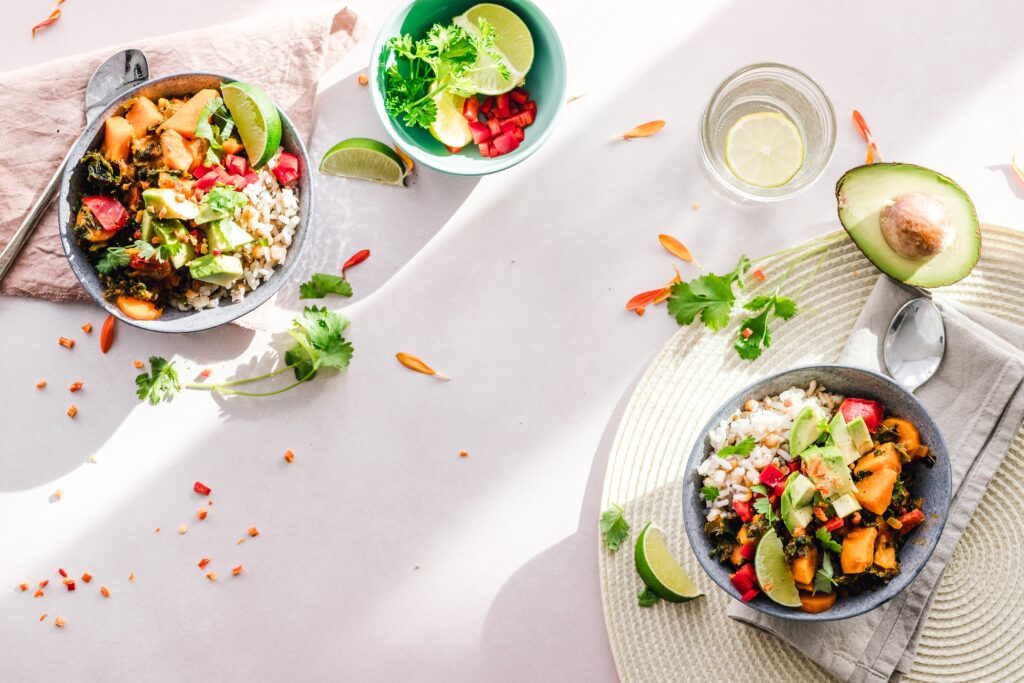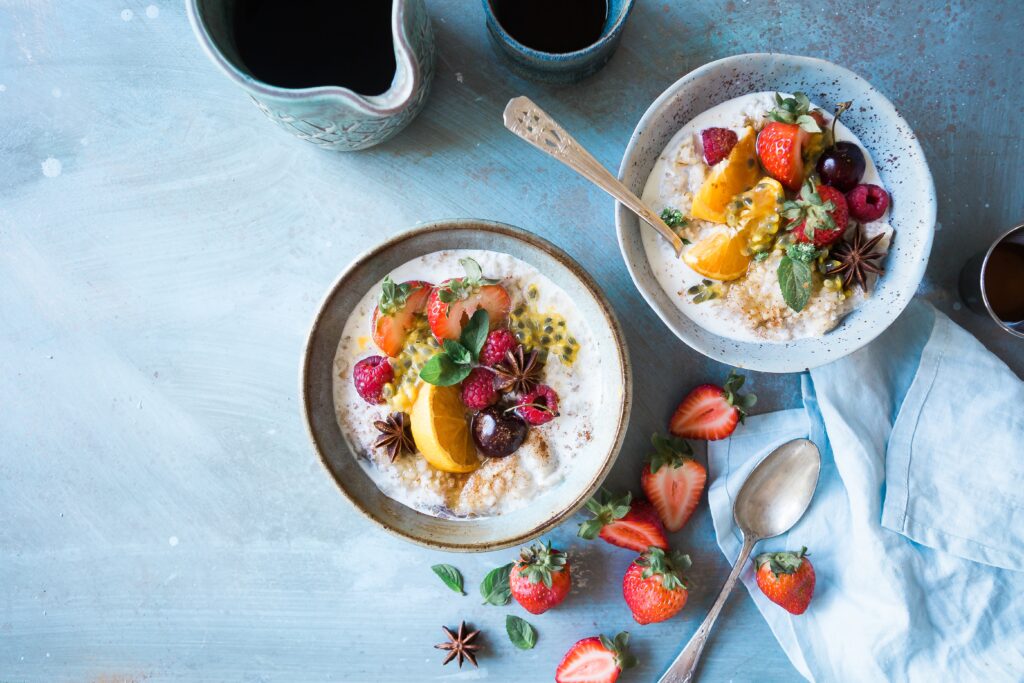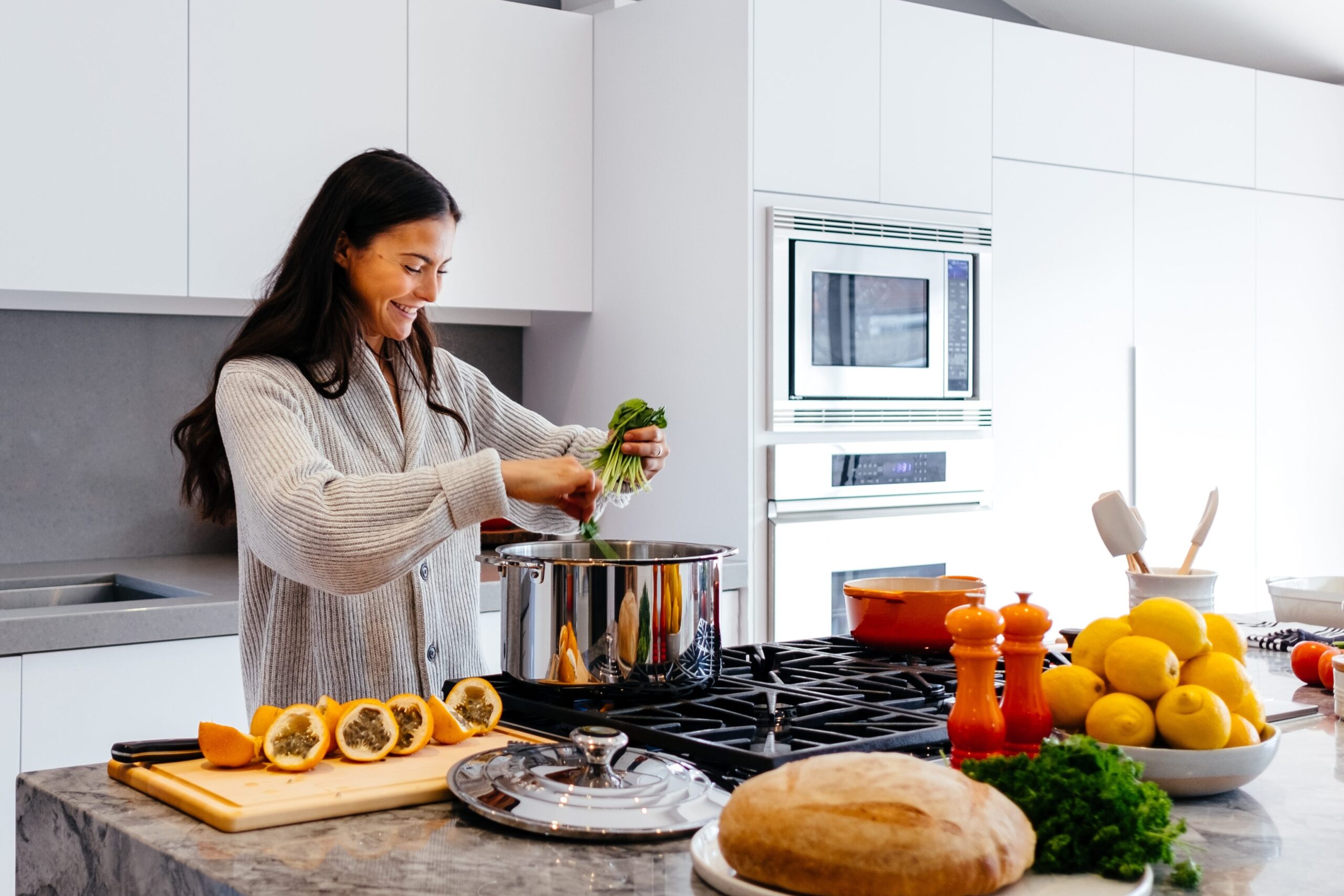This post may contain affiliate links. That means if you click and buy, I may receive a small commission (at zero cost to you). Please see my full disclosure policy for details.
Vegan digestion got you in the dumps? Constant bloating, gassiness, and inconsistent bowel movements should not be your norm, regardless of the diet you consume. As vegans, we should not accept such discomfort simply because we don’t know any differently or are used to it. In fact, we can, and should, understand how to best optimize our digestion as vegans. Because we deserve to feel light and energized after our meals- not weighed down by stomach issues.
I do want to disclaim: I am not a healthcare professional and I absolutely advocate for seeking proper support where appropriate. However, I am a longtime vegan who knows what it’s like to suffer from and overcome poor digestion. I have invested many years of effort, trial and error, and money into my own coaching and education to understand how to feel my best. Now, as a vegan with excellent digestion being my norm, I hope that sharing these tips that have helped me can help you, too. Here are 10 tips to help avoid bloating and optimize your diet and energy:
Good Vegan Digestion 101: Understand Fiber.

1. Monitor Your Fiber Intake
When adopting a plant-based diet, it’s essential to pay close attention to your fiber intake. This is because many plant-based protein sources are naturally high in fiber. Fiber is undeniably important for digestive health and overall well-being. But, overdoing it can lead to unwanted side effects such as bloating, gas, and even constipation. Therefore, it’s crucial to find your fiber “sweet spot”… more on that next. You don’t want to avoid fiber altogether, but you should be mindful of the quantity you consume.
2. Find Your Fiber “Sweet Spot”
The recommended daily fiber intake is around 14 grams per 1000 calories for the general population. However, vegans often find that their bodies can adapt to tolerate more fiber than this guideline suggests. This adaptability is one of the many intriguing aspects of a plant-based diet. Your fiber needs may vary depending on your individual physiology, overall calorie intake, food preferences and intolerances, age, activity level, etc.
Ultimately, your ideal fiber intake is highly individual and may fluctuate with changes in your calorie consumption. For example, during a cut, you might need to reduce your fiber intake as you reduce your calories to avoid potential digestive discomfort. On the other hand, during a bulk, you can consume a bit more fiber as your calories are higher. The key is to experiment and find your personal “fiber sweet spot” in seasons of cutting, maintaining, and bulking. Keeping a food journal, tracking your food, or working with a coach can help you pinpoint the right balance between fiber and calories that keeps your digestive system happy. The goal is to experience optimal health on your vegan journey, and good digestion is a key element of that.
3. Be Wary of Vegan Products with Added Fiber
The general population tends to be low in fiber as many people under-consume whole plant-based foods. Therefore, it’s common to find food products that are marketed as “high-fiber” or “fiber-enriched.” While these can come in handy in a pinch, most of these products contain excessive amounts of added fiber. You might notice certain types of tortillas, breads, protein bars, and drinks that fall into this category. An excess of fiber in your diet can have unpleasant digestive consequences, so it’s best to keep an eye on such products and use them sparingly. Additionally, try to minimize your consumption of products containing thickening agents like gums, as they can contribute to digestive discomfort in some people.
Optimal vegan digestion starts with choosing foods that agree with your body.

4. Diversify Your Protein, Fruit, and Veggie Sources
While protein is essential, not all plant-based protein sources are created equal in terms of fiber content. Try to choose protein sources that are less fibrous, like tofu instead of tempeh. If you do enjoy the higher-fiber options, that’s fine too- it’s all about planning. Consider adjusting the fiber content in the rest of your meals throughout the day to accommodate your preferences.
Another way to manage your fiber intake is to carefully select your fruits and vegetables. For instance, choose lower fiber fruits like watermelon and grapes over high-fiber options like raspberries and pears. Similarly, when consuming vegetables, you might want to limit portions of those that are exceptionally fibrous. If you’re sensitive to fiber-related digestive discomfort, you might avoid such veggies altogether (I.e. broccoli, Brussels sprouts, etc.)
Beans are another controversial food in terms of digestion for vegans. Because beans are high in fiber, it makes the most sense to not eat them in large portions if you are experiencing digestive sensitivities. If you try to use beans as a main protein source, you may soon realize that as you increase the amount of beans to rack up the protein, you also quickly rack up the fiber. Maybe eating copious amounts of beans isn’t an issue for your digestion. In that case, keep eating and enjoying beans as you please.
5. Pay Attention to Vegan Foods that Digest Well for You Specifically
Just because something is healthy doesn’t mean it will not cause bloating for you. As mentioned above, limiting fibrous veggies and using beans as a supplemental protein source rather than a main protein source are great steps to support your digestion as a vegan. However, you might find that you need to avoid these foods altogether if they cause you discomfort or even stomach pain every time you eat them. I personally do not eat certain “healthy” foods for this exact reason.
Conversely, maybe there are highly fibrous foods that don’t digest well for many people, but you can digest them just fine. I am by no means telling you to avoid specific foods, or that you must consume specific foods. It all comes down to listening to your body. Pay attention to how you feel after you eat. Are you gassy? Cramping? Feeling brain foggy or a headache? Experiencing irregular bowel movements? The foods you eat can directly cause these symptoms.
General Tips to Support Vegan Digestion and Avoid Bloating

6. Pay Attention to Meal Timing and Spacing, and be Present While Eating
Achieving optimal digestion as a vegan isn’t just about what you eat, it’s also about when you eat. Instead of grazing on snacks all throughout the day, consider implementing a meal timing strategy that allows your body ample time to fully digest your food. Try to leave at least three hours between each of your meals. This allows your digestive system to efficiently process the nutrients from your meals, and is a tool that has been key in helping me to avoid bloating. Being cognizant of your meal timing and spacing not only supports digestion, but also plays an important part in regulating your appetite and energy levels.
It’s also important to eat your meals in a relaxed state. You can practice doing this by being fully present while you eat. Distractions like scrolling on your phone, watching TV, or eating in a fast or on-the-go state can negatively impact digestion. Similarly, if you’re feeling guilty about the food you’re eating because you think it’s ‘bad’ or ‘unhealthy’, you’re not fully enjoying the experience of eating it. When you’re distracted, rushed, or overthinking your food choices, your body is in a state of stress and may not break down food properly. So, take your meals times as opportunities to sit down, relax, and engage in mindful eating. This practice not only enhances your digestive process but also fosters a healthier relationship with food, allowing you to take your time chewing and better enjoy every single bite of food you eat.
7. Get Post-Meal Movement: A Vegan Digestion Game Changer
You can improve your digestion one step at a time, literally.
After enjoying a satisfying vegan meal, don’t just settle into a food coma on the couch. Incorporating a short walk immediately after eating, even if it’s just for 10 minutes, can be a game-changer for your digestion. This light physical activity helps stimulate blood flow to your digestive organs, aiding in the breakdown and absorption of nutrients. Not only will getting in the habit of walking after meals help you to not feel bloated, but it’s also an excellent way to prevent the post-meal sluggishness that can often be associated with eating foods we enjoy.
8. Practice Good Hydration Habits
We all know that staying hydrated is important for overall health. Staying well-hydrated throughout the day is also essential for good digestion for several reasons. First, water helps to soften and break down food, which aids in its smooth passage through your digestive system. This allows your body to efficiently absorb the nutrients in your meals. Secondly, adequate hydration is crucial for the production of digestive juices and enzymes. Without sufficient water, these essential components become less effective, which may lead to inefficiencies in your digestive process and potential discomfort.
When it comes to supporting digestion, hydration timing also matters. While it’s important to hydrate throughout the day, it’s best to avoid drinking a lot of water around mealtimes. It might seem obvious to not chug water between bites of your meals. However, something I learned a few years ago that has been helpful for improving my digestion is to minimize water intake approximately 20 minutes before and after each meal. This helps prevent the dilution of the stomach acid needed to digest your food efficiently.
9. Minimize Carbonated Drinks and Chewing Gum
Fizzy drinks and chewing gum both seem pretty harmless in terms of digestion, right? In reality, carbonated beverages can introduce excess air into your digestive system, potentially causing bloating and discomfort. When you chew gum, this signals to your body that you’re eating, so it produces digestive enzymes even in the absence of food, which can lead to digestive imbalances. While a bubbly drink or piece of gum every now and then isn’t going to hurt you, if minimizing bloating is your goal, this often overlooked tip is a good one to keep in mind.
10. Prioritize Sleep and Stress Management
I know you might be thinking, “what do sleep and stress have to do with bloating and digestion?” Consistent quality and quantity of sleep is another often overlooked piece of the puzzle contributing to good digestive health. Adequate sleep plays a vital role in rest, recovery, and maintaining a healthy body, which includes a harmonious digestive system. A consistent sleep schedule promotes optimal gut function, making it easier for your body to break down and absorb nutrients from your meals. Prioritizing good sleep hygiene can be a simple but powerful step towards supporting your vegan digestion and overall well-being.
In addition to sleep, effective stress management is key for good digestion. High-stress levels can wreak havoc on your digestive system, potentially leading to indigestion. Stress activates the “fight or flight” response, which slows the function of our digestive organs and can result in bloating and digestive discomfort. Practicing your favorite stress-reduction techniques can significantly improve your digestion by calming the gut-brain connection and promoting better overall well-being. Some of my favorite ways to mange stress include meditation, breath work, yoga, and spending time outdoors. Have fun with trying new things and finding what works for you!
Important Note About Vegan Digestion

In summary, achieving optimal vegan digestion requires a holistic approach that encompasses not just what you eat, but how you eat and live. By following these tips, including mindful meal timing, post-meal movement, good hydration habits, and stress management, you can greatly enhance your digestive well-being on a plant-based diet.
However, it’s essential to note that persistent digestive issues may indicate underlying conditions like food sensitivities, irritable bowel syndrome (IBS), or more serious conditions. If you continue to experience poor digestion despite positive lifestyle habits and food choices, it’s best to consult with a healthcare professional who can provide guidance and conduct tests to identify and address any potential underlying issues, ensuring your digestive health remains a priority on your vegan journey.
Is digestion something you’ve ever struggled with as a vegan? Leave a comment and let me know which digestion tips have helped you, which tips you’d like to start implementing, or tips that have helped you that aren’t mentioned here!



I appreciate it when you said that we can still experience bloating even if we are only eating healthy foods. I wonder if there are vegan bloating control capsules that I can intake when I start changing my lifestyle. It’s my goal this year to become vegan to take care of my body’s overall health.
Hi Mia, I love that your goal is to go vegan this year and take better care of your health! I wouldn’t recommend turning to pills as a first resort to control bloating, as that’s just putting a bandaid on the issue. Keep track of your fiber intake, and play around with lowering it (assuming you’re eating a lot of whole, highly fibrous foods) to see at what fiber intake your digestion feels best. Also, keep note of what types of foods make you feel bloated after eating vs. what meals you feel good and not as bloated after. Trial and error! You can also bookmark and refer back to the article here for tips to help minimize bloating, like taking a short walk post-meal to support digestion, and making sure you’re staying hydrated and well-rested. I hope this helps!
hi vegan for 3 years but gives me bloated belly,plenty of fibre ie nuts,grains,seeds pro,pre biotics oils but nut much helping any new ideas?
Hi Paul, are you tracking your food? You may be eating too much fiber.